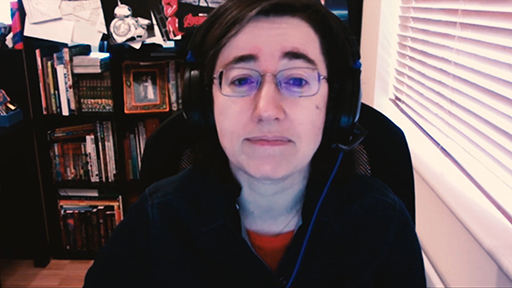Session 2 Conclusions and next steps
This session of the course is written by Francesca Benatti from The Open University.
Congratulations! This is the last session which will help you recap what you have learned during and provide suggestions on finding out more. It will also prompt you to reflect critically on the role of the digital in your research and your life.
After studying this session, you should have:
- revised what you learned in previous sessions
- familiarised yourself with sources of further training in digital humanities
- reflected critically on how digital methodologies and sources are transforming research in the Humanities.

Transcript: Video 2
Hello again. You've now reached the end of this course on your humanities research in the digital age. You've seen and experienced some of the fundamentals of research in the digital age, such as digitization, metadata, open access, and the fair principles. You've also seen some basic techniques to obtain, clean, analyse, and share data.
You've begun to reflect on the implications of being a digital researcher and to ask questions about your data and your methods. We hope we have inspired you to learn more about digital humanities, data wrangling, digitization, data management, or even programming.
Below, you'll find links to resources, courses, and tools, that are related to the topics of this course. Whether you continue your studies in digital humanities or not, we do hope you've really enjoyed learning about humanities research in the digital age. We'd love to hear your feedback and suggestions. Thanks for participating. And all the best for the future.
In Week 1 you learned that digital research in the Humanities has long history. You learned how material documents are transformed into digital versions and understood the challenges presented by this process, reflecting on how digitised documents can be used for research. You understood the difference between data and metadata and familiarised yourself with the basic functionality of a search engine. You learned you must always ask questions of your digital data to be aware of its origin and format.
During Week 2, you learned the difference between digitised and born-digital data and reflected upon the ways it can be used for research. You realised that born-digital data depends on a physical infrastructure of devices and requires archiving and preservation. You learned of the possibilities of big data approaches and familiarised yourself with certain quantitative methods and tools, to which you need always to apply critical evaluation. You discovered the principles of Intellectual Property and of Open Access, reflecting upon some of the ways in which these shape scholarship and research.
During Week 3, you learned the importance of data wrangling for digital methods, grasping the main elements of the process and gaining insights about data ethics and personal data. You studied analysing your data, learning the differences between quantitative, qualitative and mixed methods. You also learned the meaning of ‘digital divide’ and how to help address it. Finally, you learned how researchers communicate and publish their research results, reflecting on the importance of making open data, software and publications. You learned about emerging trends such as social editions and citizen science and about the concept of knowledge infrastructure.
Throughout this course, you have realised that using digital data, tools and methods in your research can be challenging. As a researcher you have to put effort into finding relevant and reliable data that can be used legally and ethically. Digital data requires effort to prepare it for analysis and interpretation and to make it available for others to reuse. Crucially, you’ve learned that the most important skill needed to become a digital researcher is the ability to ask questions of every step in your research.
In this session you can find some suggestions for developing your digital research skills further. The list is not exhaustive. Whichever route you take, the accessus questions (Who? What? Why? How? When? Where? By which means?) you learned in Week 1, Session 3, combined with your previous training in the Humanities, are a good starting point for the next stage of your journey.
